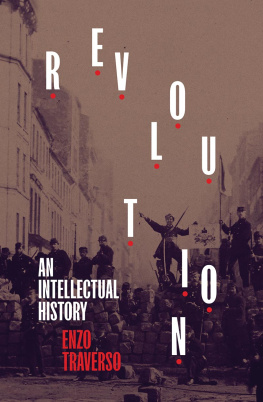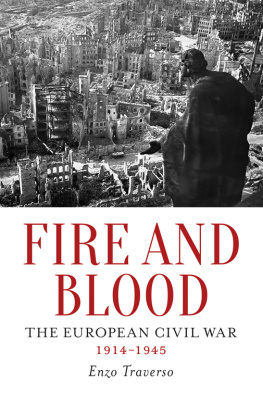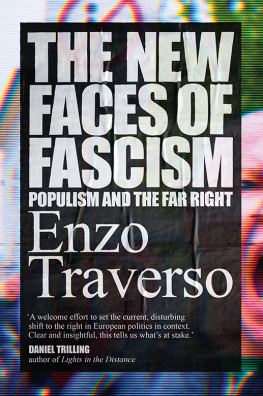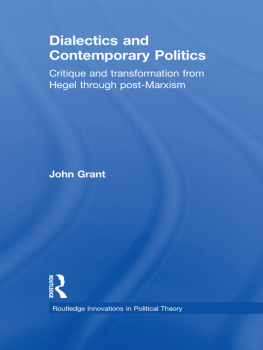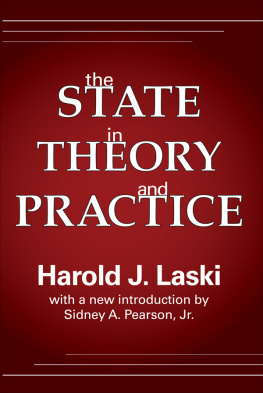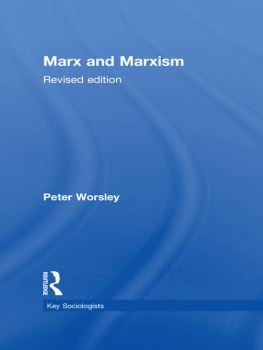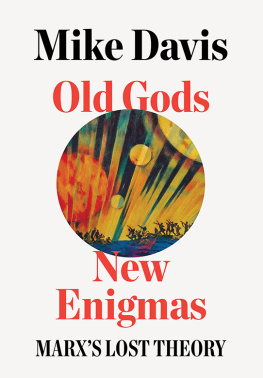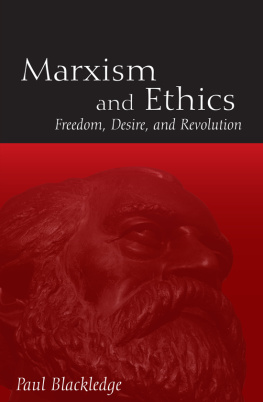Left-Wing Melancholia
New Directions in Critical Theory
New Directions in Critical Theory
Amy Allen, General Editor
New Directions in Critical Theory presents outstanding classic and contemporary texts in the tradition of critical social theory, broadly construed. The series aims to renew and advance the program of critical social theory, with a particular focus on theorizing contemporary struggles around gender, race, sexuality, class, and globalization and their complex interconnections.
Narrating Evil: A Postmetaphysical Theory of Reflective Judgment, Mara Pa Lara
The Politics of Our Selves: Power, Autonomy, and Gender in Contemporary Critical Theory, Amy Allen
Democracy and the Political Unconscious, Nolle McAfee
The Force of the Example: Explorations in the Paradigm of Judgment, Alessandro Ferrara
Horrorism: Naming Contemporary Violence, Adriana Cavarero
Scales of Justice: Reimagining Political Space in a Globalizing World, Nancy Fraser
Pathologies of Reason: On the Legacy of Critical Theory, Axel Honneth
States Without Nations: Citizenship for Mortals, Jacqueline Stevens
The Racial Discourses of Life Philosophy: Ngritude, Vitalism, and Modernity, Donna V. Jones
Democracy in What State?, Giorgio Agamben, Alain Badiou, Daniel Bensad, Wendy Brown, Jean-Luc Nancy, Jacques Rancire, Kristin Ross, Slavoj iek
Politics of Culture and the Spirit of Critique: Dialogues, edited by Gabriel Rockhill and Alfredo Gomez-Muller
Mute Speech: Literature, Critical Theory, and Politics, Jacques Rancire
The Right to Justification: Elements of Constructivist Theory of Justice, Rainer Forst
The Scandal of Reason: A Critical Theory of Political Judgment, Albena Azmanova
The Wrath of Capital: Neoliberalism and Climate Change Politics, Adrian Parr
Media of Reason: A Theory of Rationality, Matthias Vogel
Social Acceleration: The Transformation of Time in Modernity, Hartmut Rosa
The Disclosure of Politics: Struggles Over the Semantics of Secularization, Mara Pa Lara
Radical Cosmopolitics: The Ethics and Politics of Democratic Universalism, James Ingram
Freedoms Right: The Social Foundations of Democratic Life, Axel Honneth
Imaginal Politics: Images Beyond Imagination and the Imaginary, Chiara Bottici
Alienation, Rahel Jaeggi
The Power of Tolerance: A Debate, Wendy Brown and Rainer Forst, edited by Luca Di Blasi and Christoph F. E. Holzhey
Radical History and the Politics of Art, Gabriel Rockhill
The Highway of Despair: Critical Theory After Hegel, Robyn Marasco
A Political Economy of the Senses: Neoliberalism, Reification, Critique, Anita Chari
The End of Progress: Decolonizing the Normative Foundations of Critical Theory, Amy Allen
Recognition or Disagreement: A Critical Encounter on the Politics of Freedom, Equality, and Identity, Axel Honneth and Jacques Rancire, edited by Katia Genel and Jean-Philippe Deranty
What Is a People?, Alain Badiou, Pierre Bourdieu, Judith Butler, Georges Didi-Huberman, Sadri Khiari, and Jacques Rancire
Left-Wing Melancholia
Marxism, History, and Memory
Enzo Traverso
Columbia University Press
New York
COLUMBIA UNIVERSITY PRESS
PUBLISHERS SINCE 1893
NEW YORK CHICHESTER, WEST SUSSEX
cup.columbia.edu
Copyright 2016 Columbia University Press
All rights reserved
Library of Congress Cataloging-in-Publication Data
Names: Traverso, Enzo, author.
Title: Left-wing melancholia: Marxism, history and memory / Enzo Traverso.
Description: New York: Columbia University Press, 2016. | Series: New directions in critical theory | Includes bibliographical references and index.
Identifiers: LCCN 2016023862 | ISBN 9780231179423 (cloth: alk. paper) | ISBN 9780231543019 (e-book)
Subjects: LCSH: CommunismHistory. | Memory. | Melancholy (Philosophy) | HistoryPhilosophy.
Classification: LCC HX40 .T6365 2016 | DDC 335.4dc23
LC record available at https://lccn.gov/2016023862
A Columbia University Press E-book.
CUP would be pleased to hear about your reading experience with this e-book at cup-ebook@columbia.edu.
COVER DESIGN: Jenny Carrow
For Michael Lwy
Contents
The aim of this book is to investigate the melancholic dimension of left-wing culture in the past century. The left I will deal with is not defined in merely topological terms (the parties on the left of the political and institutional space), according to the conventional viewpoint of political science, but rather in ontological terms: as movements that struggled to change the world by putting the principle of equality at the center of their agenda. Its culture is heterogeneous and open, insofar as it includes not only a multitude of political currents but also a plurality of intellectual and aesthetic tendencies. This is why I decided to analyze theories and testimonies (the political and philosophical ideas deposited in books, articles, letters) without excluding images (from propaganda posters to paintings and movies). Of course, I devote an important place to Marxism, which was the dominant expression of most revolutionary movements in the twentieth century. In other words, this book would like to approach left-wing culture as a combination of theories and experiences, ideas and feelings, passions and utopias. The memory of the left is a huge, prismatic continent made of conquests and defeats, while melancholy is a feeling, a state of the soul and a field of emotions. Thus, focusing on left-wing melancholy necessarily means going beyond ideas and concepts.
At the beginning of the 1980s, the rise of memory in the field of the humanities coincided with the crisis of Marxism, which was absent from the memorial moment characteristic of the turn of the twenty-first century. The Marxist vision of history implied a memorial prescription: we had to inscribe the events of the past in our historical consciousness in order to project ourselves into the future. It was a strategic memory of past emancipatory struggles, a future-oriented memory. Today, the end of communism has broken this dialectic between past and future, and the eclipse of utopias engendered by our presentist time has almost extinguished Marxist memory. The tension between past and future becomes a kind of negative, mutilated dialectic. In such a context, we rediscover a melancholic vision of history as remembrance (Eingedenken) of the vanquishedWalter Benjamin was its most significant interpreterthat belongs to a hidden Marxist tradition. This book tries to analyze this mutation, this transition from utopia to memory.
For more than a century, the radical left drew its inspiration from Marxs famous eleventh thesis on Feuerbach: until now, philosophers have only interpreted the world, but the point is to change it. When, after 1989, we became spiritually roofless and were forced to recognize the failure of all the past attempts to transform the world, the ideas themselves with which we had tried to interpret the world were put into question. And when, a decade later, new movements appeared proclaiming that another world is possible, they had to redefine their own intellectual and political identities. More precisely, they had to reinvent themselvesboth their theories and their practicesin a world without a visible, thinkable, or imaginable future. They could not invent a tradition, like other generations of orphans had done before them. This shift from an age of fire and blood that, in spite of all its defeats, remained decipherable to a new time of global threats without a foreseeable outcome takes on a melancholic taste. This melancholia, however, does not mean a retreat into a closed universe of suffering and remembering; it is rather a constellation of emotions and feelings that envelop a historical transition, the only way in which the search for new ideas and projects can coexist with the sorrow and mourning for a lost realm of revolutionary experiences. Neither regressive nor impotent, this left-wing melancholia should not evade the burden of the past. It is a melancholy criticism that, while being open to the struggles in the present, does not avoid self-criticism about its own past failures; it is the melancholy criticism of a left that is not resigned to the world order sketched by neoliberalism but that cannot refurbish its intellectual armory without identifying empathetically with the vanquished of history, a large multitude inexorably joined, at the end of the twentieth century, by an entire generationor its remainsof defeated leftists. In order to be fruitful, however, this melancholia needs to become recognizable, after having been removed during the previous decades, when storming heaven appeared the best way to mourn our lost comrades.
Next page

